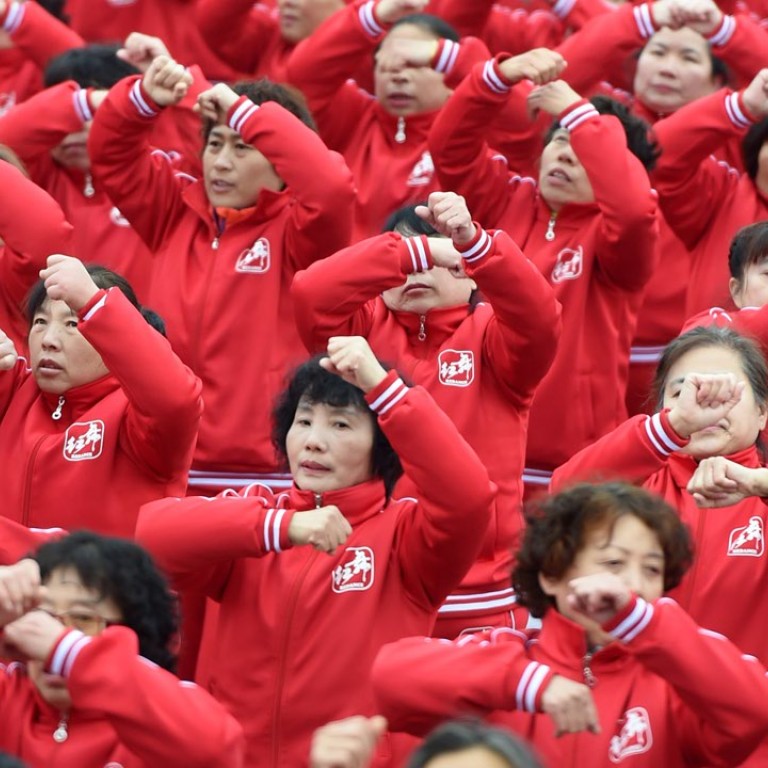
Letters to the editor, January 23, 2016
Transgender people need a helping hand
Sex-change surgery has become more common in recent years, which is raising some concern. Hong Kong is an international city and most people will try to respect and accept transgender people. But discrimination still occurs.
Transgender people have the same rights as others, of course, and should enjoy equal treatment and equal opportunities. Laws protecting them against discrimination are necessary, and so is promoting awareness of their rights through public education.
At the same time, we must provide more resources for people who are suffering from a gender identity disorder. Take Beatrice Wong Suet-ling, who struggled for years with depression before finally opting for a sex change. Not everyone facing the same dilemma is as lucky as Wong. Some cases end in suicide. Having more doctors and other health-care resources on hand can ensure more timely help for those who need it.
At the end of the day, everybody should be treated equally and transgender people are no different from everyone else. We should not discriminate transgender people as we do not have the right to judge others.
Stella Chan Chi Wah, Kowloon Tong
Hong Kong has its own dancing dama
We have all heard about the “Dancing Dama” (dama being a term for older women) culture in mainland China. Groups of middle-aged and elderly women gather together in a park or any open ground to dance to music blaring from a stereo system.
This culture appears to have found its way to Hong Kong. Recently I noticed a group of dama dancing at an open area near my home every week. It is just a small group. They meet at night and play their music at a low volume.
I’m all for the spread of this Dancing Dama culture as long as it doesn’t disturb nearby residents. The group of dama near my home are very polite; they don’t yell or laugh loudly, they just want to enjoy their dancing. This doesn’t bother anyone.
This is a good way for middle-aged and elderly women to take part in some exercise and also provide an outlet for them to socialise.
Wong Kan Hei, Kowloon Tong
Strictly no ‘chequebook diplomacy’
We would like to provide several points of clarification.
Following an uprising in Burkina Faso in 2014, a transitional government was formed for the primary purpose of holding open, fair and transparent elections. Elections were held on November 29, 2015, winning widespread approval in the global community.
As a responsible partner in international cooperation, the Republic of China is happy to share its national development experiences, and is also pleased with the solid friendship it has forged with Burkina Faso since the restoration of diplomatic ties more than two decades ago. We have not offered any specific aid to Burkina Faso in exchange for this friendship.
One of our major cooperation programmes with Swaziland is aimed at developing its biotechnology industry, with financial aid provided after exacting negotiations and written confirmation by both governments.
Under the ownership principle of international development aid, the Republic of China respects beneficiary countries’ priority development policies in the hope that they, in turn, will take responsibility for implementing projects. We have thus accorded due respect to Swaziland in the development of its biotech sector.
Over the years, the Republic of China’s bilateral cooperation with diplomatic partners has placed an ever-higher priority on programmes that benefit people’s livelihoods and well-being. There have been some significant successes, as reported by Mr Broadhead in his references to malaria eradication in São Tomé and Príncipe and the establishment of the National Hospital in Ouagadougou.
The Republic of China has not conducted “chequebook diplomacy” by offering aid to select politicians.
It offers foreign aid based on three principles: our purpose must be legitimate, the process must be lawful, and the implementation must be effective. We remain devoted to promoting cooperative programmes with our diplomatic partners that enhance the welfare of their citizens.
Ines Chang Huei-ying, deputy director, Taipei Economic and Cultural Office in Hong Kong
Putonghua can help us widen our networks
Should Putonghua be used as a medium of instruction to teach Chinese in Hong Kong? Views are divided on this issue.
Some people think requiring Putonghua instruction would pose great difficulties for our Cantonese-speaking students. However, I think there are benefits to a change.
First, with better Putonghua skills, Hong Kong people will be able to communicate better with mainland Chinese, and it will make travelling around the mainland easier.
Second, it will be good for their future careers. Hong Kong is an international city, and Putonghua is more widely used in other parts of the world than Cantonese. For example, we can speak Putonghua with people in South Korea, Singapore and Taiwan, besides those on the mainland.
Overall, I think the pros outweigh the cons of using Putonghua as a medium of instruction in class.
Tiffany Wong, Sham Shui Po
Mother-tongue instruction still the best option
As China expands its economic influence around the world, Putoghua has become a more important language in the world. As such, it would benefit Hong Kong if more people could learn to speak it well.
Despite such benefits, however, we need to consider the disadvantages.
Putonghua is not our mother tongue. As has been reported, only 14 per cent of Hong Kong people can speak it fluently. So it can be very difficult for students to be having their lessons in Putonghua. It is better to choose a language that students are more familiar with.
Not only the students, but the teachers, too, are unlikely to be proficient in Putonghua.
Due to these problems, Putonghua should not be the medium of instruction for Chinese lessons in Hong Kong schools.
Rachel Leung Cho Kwan, Kowloon Tong

